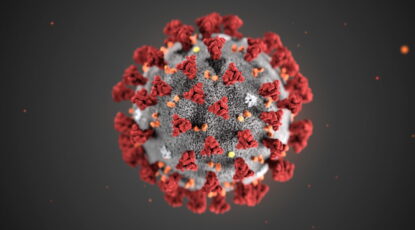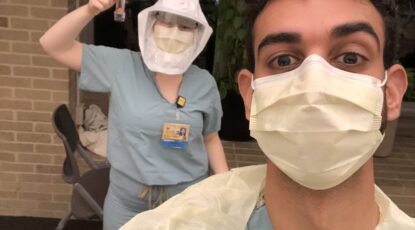Research News
-
July 2020: Coronavirus and U-M
From making drug discoveries to fighting pandemic-related food insecurity, here is a roundup of the latest news, features, and other campus updates regarding COVID-19.
-
Asian carp threat intensifies
The ongoing warming of Lake Michigan increases its susceptibility to these voracious algae-eating carp, in part by reducing the capacity of quagga mussels, which act as an ecological barrier.
-
A ‘menacing, alien machine’
The coronavirus’ spiky ball tells a story, and if people understood it better they might feel more confident about defeating it, says the scientist who founded U-M’s BioArtography Project.
-
Cruel, cruel summer
The mental health toll of caring for COVID-19 patients will require long-lasting attention, experts predict. And the summer surge is blazing.
-
Weisers establish diabetes institute
Regent Ron Weiser and his wife, Eileen, have committed $30 million to U-M for diabetes research and the development of life-changing therapies at Michigan Medicine.
-
U-M to launch second wave of research re-engagement
More than 700 researchers returned to the Ann Arbor campus in recent weeks and safely ramped up activity as part of the University’s pilot wave to re-engage research and scholarship.
-
Medical students drive development of new pandemic course
Students will explore various aspects of pandemic response using COVID-19 as a case study, from the history of pandemics; disaster response from the federal down to the local and institutional levels; and health inequities, among other topics.
-
Everyone vs. COVID-19: U-M scientists need public’s help
Signing up for U-M registry will make it easy for researchers to find sick, recovered, at-risk, and healthy people for dozens of studies. The goal is to understand, prevent, treat, and measure COVID-19’s effects on people and society.
-
Discovery may lead to better anti-obesity treatments
Researchers have unveiled the precise shape of a key player in human metabolism, which could open the door to better treatments for obesity and other metabolic disorders.










